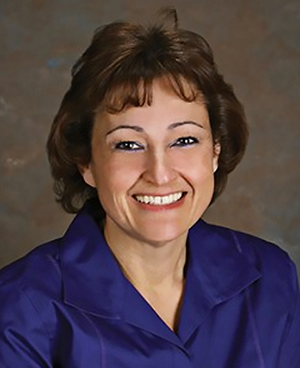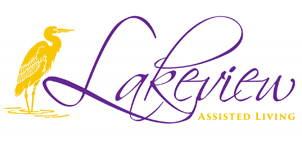What is Assisted Living?
Many people are confused as to what assisted living is, and how it differs from other options such as nursing facilities.
In Michigan, several types of residential and healthcare communities may fall under the umbrella of “Assisted Living.” These types include independent senior apartments, housing with services establishments, licensed homes for the aged (HFA) and licensed adult foster care homes (AFC). Regardless of its location or licensure type, assisted living communities embrace a philosophy of maximizing the resident’s dignity, autonomy, privacy, independence; accommodating their changing needs and preferences; and minimizing the need to relocate in the likely event that their needs will increase over time as they “age in place.”
Ganton Senior Communities is a campus comprised of three State licensed HFA's- Heritage Assisted Living, Reflections Memory Care, and Lakeview Assisted Living. HFA's are licensed supervised personal care facilities that provide room, board and supervised personal care to 21 or more unrelated, non-transient individuals who are 60 years of age or older. In Michigan, the Bureau of Child and Adult Licensing (BCAL), part of the Department of Health & Human Services (DHHS) is charged with the responsibility of licensing and monitoring assisted living facilities. At Ganton Senior Communities, our goal is to not only to meet our licensing requirements but to implement best practices in the assisted living industry.
How Are We Different Than a Nursing Home?
Nursing Homes and Licensed HFA's are both considered healthcare facilities. They both fall under Public Health Code Act 368, however they operate under a completely different set of licensing rules, limiting the level of care that can be provided to residents by a licensed HFA. In the State of Michigan, a licensed HFA is not required to employ licensed staff at all, for example, LPN's and RN's. At Ganton Senior Communities, we choose to employ both licensed and non-licensed staff. However, we do not employ licensed staff to work in our communities 24 hours a day. As a licensed HFA, we are prohibited from accepting new residents who require 24-hour nursing oversight. We can use home health agencies and hospice to provide PT/OT and skilled care for our residents on a temporary basis. Nursing homes provide around-the-clock skilled nursing care for the frail elderly who require a higher level of medical care and assistance. Twenty-four-hour skilled nursing services are available from licensed staff. Many nursing homes now provide short-term rehabilitative stays for those recovering from an injury, illness or surgery.
Nursing home residents generally have high care needs and complex medical conditions that require routine skilled nursing services. Nursing homes are best suited for people who require significant personal and nursing care: being bed-bound, having fractures or wounds that are not healing, and having multiple medical problems like diabetes, heart disease and congestive heart failure for a few examples.
An assisted living environment bridges the gap between independent living and nursing home care. While residents may no longer be able to live by themselves, they may not require constant medical care. Assisted living offers care services in a more home-like environment. Residents in an assisted living environment have as much independence as they want with the knowledge that personal care and support services are available if they need them. Assisted living communities are designed to provide residents with assistance with basic activities of daily living (ADL's) such as bathing, grooming, dressing, medication management and more.
What is "Aging in Place"?
"Aging in Place” is frequently one of the most challenging dynamics facing assisted living communities. It can be difficult balancing the desires of residents and families who have an interest in maintaining continuity of setting against the need to have continuity of care. As our resident’s medical needs increase, we first respond by utilizing licensed home healthcare agencies and hospice to deliver the medical component of care needed. In most cases, these options allow our residents to age in place. We cannot, however, operate beyond our licensed capacity and authority to provide care.
How Can Hospitals and Skilled Nursing Facilities Partner With Us to Reduce Hospital Readmissions?
Hospitals and Nursing Homes can assist in the reduction of hospital readmissions by first having a clear understanding of what assisted living is and is not. It is first important to know that our licensed nurses are hired to provide four major things:
- Provide trained eyes to make observations and assessments, and recommendations to seek medical care if appropriate
- Medication monitoring. Licensing regulations usually provide that s/he can delegate some of this responsibility to properly trained lower-level employees, but s/he retains responsibility for managing residents’ medications
- Provide advocacy on behalf of our residents by communicating with their physicians, the hospital, skilled rehabilitation, etc.
- Provide complex coordination of services with third-party providers to ensure residents’ ability to age in place, and to safely reduce hospital admissions and unnecessary admissions into skilled nursing facilities.
Most nurses are licensed to provide care under the supervision of a physician or other independently licensed medical provider. Because an assisted living nurse does not work under the professional oversight of residents’ physicians, our nurses are not allowed to provide actual skilled nursing care. S/he may provide some emergency care, and can make recommendations about whether a resident should go to the emergency room or follow up with a personal physician. Because of this, it is imperative that new residents and residents returning to us from a hospital or skilled rehabilitation stay come to us with properly written and signed orders per our regulations. Our nursing staff must ensure that all medications are correctly reconciled, that we have all medications in hand to administer and all supplemental third party services are in place prior to a resident admission or return. This takes a strong partnership, communication, and coordination on the part of our Marketing Director, Directors of Residents Care/Nurses and hospital Discharge Planners, Social Workers and third-party service providers.
Addressing the Mental Health Concerns of Our Residents
Oftentimes, assisted living providers don’t focus enough on the mental health needs of their residents. At Ganton Senior Communities, we believe in addressing not only our residents’ physical conditions but their mental health needs as well. Loss of independence, the death of loved ones, increased isolation and increased medical problems can lead to depression and anxiety. The effects of depression and anxiety go far beyond mood. It impacts energy, sleep, appetite, and physical health, all issues that can cause hospitalization or earlier entry into a skilled nursing facility. At Ganton Senior Communities, we understand that depression is not an inevitable part of aging.

Moving into an assisted living community involves major changes in an elderly person’s life. Many seniors are ashamed or frightened by their symptoms or believe they are an unavoidable part of aging. We work closely with Lisa Ottenhoff, LMSW, ACSW, Owner of Comforts of Home Counseling as our preferred provider to provide mental health counseling, stress management, case management and support groups to our residents and families. Lisa brings to our communities a tremendous amount of experience with and knowledge of the geriatric population. Lisa has helped our families cope with the physical and emotional demands of caregiving and has provided our staff with the necessary education and training on how to better care for our residents’ emotional and mental health needs.
What is the Assessment?
It sounds scary, and most applicants feel apprehensive about the required pre-admission assessment. However, there really is nothing to be concerned about. This is not a pass/fail “test” but rather it creates a baseline for Ganton Senior Communities to establish a required level of care for each resident. Our goal is to ensure our staff is able to adequately care for your every need. This assessment provides the information necessary to build a care plan used by our clinical staff to ensure all of your needs – physical, social, medical and psychological, are met. This customized care plan follows each resident through their stay with us and is updated frequently as your needs change.
Half of the assessment is a physical assessment. Our Director of Resident Care will ask you a series of questions about your daily activities and personal hygiene and habits. This will help us better understand what assistance in daily living you may need.
The other half of the assessment is the administration of the Michigan Mini-Mental Exam. This exam essentially allows us to see how you currently process provided instruction.
